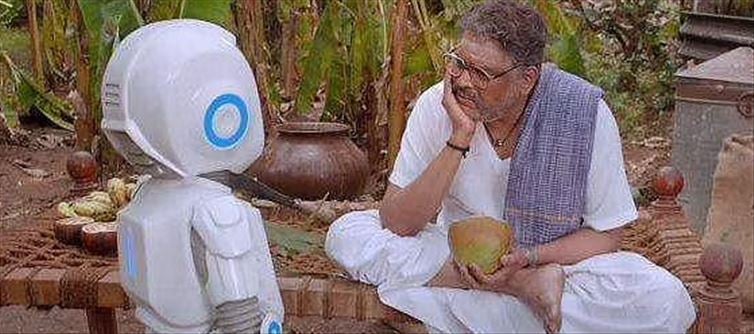
Despite being a retelling, there are several elements in Koogle Kuttappa that feel more meaningful when translated into English. Subramani, for example, frequently laments that his son Adithya (Tharshan) is too preoccupied to scatter his mother's ashes. This feeling may be extended to those long-awaited dinners, hospital appointments, or local temple visits that working children promise their elderly parents. The robot can represent a neighbourhood kid or a pet that our parents like and become fond of while we are away. The fact that director pair Sabari-rural Saravanan's sci-fi feature falls more on the family drama spectrum is a nice change that enhances Koogle Kuttappa.
Every character in Koogle Kuttappa wishes for someone to listen to their hearts, and their relationships are determined by whether or not that someone exists. Because they don't listen to each other, adithya and Subramani have formed a mutual hatred club. Tharavi (Losliya) falls in love with Adithya, and Subramani considers the robot Kuttappa to be his son because they both make an attempt to listen. Isn't it true that the fuel that keeps us all running is deep chats with our loved ones?
When it comes to remakes, many have doubts. Some people believe that classics should not be reproduced, and that watching dubbed versions or the original with subtitles is sufficient. But how can we refuse to accept such wonderful films, which emphasise the necessity of being there for one another, knocking on our doors in our own language?




 click and follow Indiaherald WhatsApp channel
click and follow Indiaherald WhatsApp channel